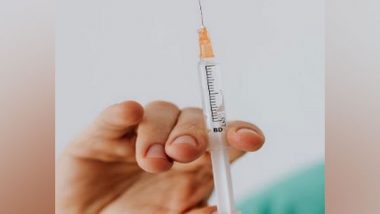As India continues to be at war with the COVID-19 pandemic, more information about the COVID-19 vaccine and its link with fertility is being analysed by experts. People have had their doubts about the vaccine's safety in the case of younger people especially the ones above the age of 12. However, the experts have claimed that the vaccine is safe for teens and it doesn't interfere with fertility, puberty, or hormones in teens. Pfizer COVID-19 vaccine is authorized in children 12 and above and scientists stress that the shots are safe for younger people.
Here's How COVID-19 Vaccines Has Nothing To Do With Fertility
COVID-19 vaccines introduced a new mRNA platform to immunization, but they work the same way other vaccines work to help the body create protection. On a cellular level, scientists say it's impossible for these vaccines to interfere with a person's own genetic blueprint which means that the shots are safe for kids in terms of puberty and infertility in teens and kids. Just like all other childhood immunizations, COVID-19 vaccines won't interfere with puberty or future fertility. "These particles cannot cause any long-term issues, such as autoimmune diseases or impacts on fertility or pregnancy. There is no link between the COVID-19 vaccines and fertility -- it's an urban legend," said Dr. Stacy De-Lin to ABC.
Decades of research on the platforms used to create current COVID-19 vaccines have allowed experts to clearly understand what happens once the vaccine gets inside the human body – and say it cannot alter our own genetic makeup. Unlike a traditional vaccine, which uses a weakened or killed virus to activate the body's defenses, these vaccines don't use the virus at all. Instead, vaccines from Pfizer and Moderna use small bits of genetic material called mRNA, which, like an instruction manual, tell your cells to make a protein normally found on the outside of the virus. This activates your immune system defense, protecting you if you are ever exposed to the virus in the future.
Dr. Peter Hotez, a professor of pediatrics and molecular virology and the dean of the National School of Tropical Medicine, agrees there is no biological reason that mRNA could get into your DNA and interfere with adolescent development. "There's no plausible mechanism by which that could occur," Hotez said to ABC.
(The above story first appeared on LatestLY on May 21, 2021 12:10 PM IST. For more news and updates on politics, world, sports, entertainment and lifestyle, log on to our website latestly.com).













 Quickly
Quickly













 MI
MI







